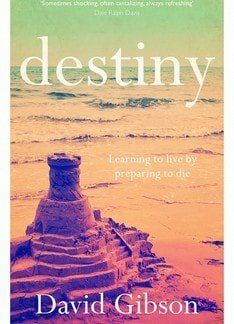Ecclesiastes is perhaps the most startling and intriguing book of Scripture. In this series of consecutive studies, David Gibson draws lessons that follow the flow of thought in an uncompromising fashion, without trying to sanitise the hard-hitting original.
Destiny is not a comprehensive commentary on Ecclesiastes. Some passages are passed over and several of the more puzzling verses are not tackled. However, Gibson seeks to trace the general theme of the book.
Ecclesiastes proclaims that life is not ‘vanity’ or ‘meaningless’ (as traditionally translated), but brief and elusive. It is to be lived to the full in acceptance of this reality. Gibson views the repeated phrase ‘under the sun’ not as a temporary supposition of a secularist perspective, but as depicting the universal nature of life in this present world, whether for believer or unbeliever.
Seeing life as ‘gift not gain’ is a neat summary of the message. Acknowledging the limitations and uncertainties of this fallen world should set us free to live well, in fellowship with God and man, enjoying God’s gifts without idolising them.
This seems very much a contemporary take on Ecclesiastes. That is both positive — helping to relate and apply Scripture to today’s world — but also a limitation. For Gibson’s exhortation to ‘do your bucket list, not your to-do list’ (p.124) might resonate with comfortable 21st-century westerners, but those facing poverty, persecution and pain on a daily basis might have a different perspective.
Emphasising enjoyment of God’s gifts is a necessary corrective for those of us who sometimes appear oblivious to the blessings that are ours. But it is only a step away from hedonism. ‘Gift not gain’ may be true in this life, but Scripture elsewhere does encourage us with the goal of heavenly reward and the assurance that our labour is not in vain. Gibson’s approach also makes the closing words of Ecclesiastes (on God’s judgment) seem almost a new idea rather than a conclusion.
This book picks up a strand of thought that runs through Ecclesiastes, developing it in a relentless but compelling and accessible way. It should help anyone who has struggled with Ecclesiastes to engage profitably with the text. It may not, on its own, provide the key to understanding this part of Scripture.
Alan Wells
Bromsgrove



